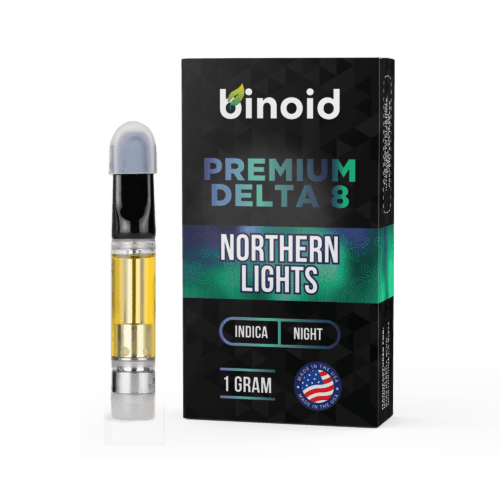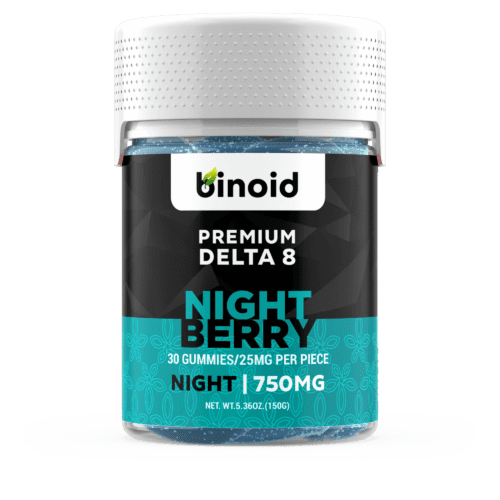
Marijuana Farmers Feel Threatened by Delta 8 THC
Delta 8 THC has been a godsend to those in the cannabis industry in many ways since it first hit the scene about 2 years ago. Delta 8 is the minor cannabinoid of the hemp plant that has mild Delta 8 psychoactive properties – about 30% less intoxicating than delta 9 THC – while being relatively cheap to produce, as it is simply a matter of rearranging the molecules of its isomer CBD.
Delta-8 is now widely available throughout the country, at least in states in which it’s legal, and is recognized as a federally legal compound because it comes from hemp, while marijuana and its dominant intoxicating cannabinoid delta 9 remain federally prohibited, and illegal in most states.
By and large, the cannabis community is delighted to have legal access to a form of tetrahydrocannabinol (THC) that can be purchased online in another state. Delta 8 is also different from delta 9 in its effects – besides being milder, it seems to offer relaxing properties that many cannabis users seek out. Therefore, it is not surprising that a lot of people are choosing delta 8 over delta 9 for numerous reasons.
Still, not everyone is happy about this minor compound’s sudden success, including marijuana farmers in Washington State. They believe that state laws are inhibiting their businesses while delta 8 THC continues to act as ever-growing competition. Currently, farmers are worried that the delta 8 market in the state will put them out of business entirely.
Delta 8 THC: Legal in Washington
Washington State is one of 38 states in which delta-8 THC is legal, as Alaska, Arizona, Arkansas, Colorado, Delaware, Idaho, Iowa, Mississippi, Montana, New York, Rhode Island, and Utah have banned the cannabinoid since it hit the market. Resident enthusiasts can legally purchase delta 8 in local stores and online as long as they are of legal age.
This poses an issue for Washington farmers, at least if you ask them, because producing delta 8 THC products is simply cheaper than producing marijuana products. As its success grows in this state, marijuana farmers are worried that it can overtake demand for their own products, while delta-8 is also often sold at cheaper prices to reflect the lower manufacturing costs, thus giving delta-8 yet another competitive edge.
So, What Exactly Happened With Delta8 In Washington?
Marijuana farmers from Washington met with scientists and state lawmakers in a virtual meeting to discuss cannabis legislation moving forward, and to air their concerns. The biggest obstacle is that those with a license to grow and produce marijuana products currently cannot do the same with hemp products, which means that farmers are missing out on a huge piece of the pie. Because delta 8 products is more accessible and cheaper, they worry that their customers will end up giving up marijuana entirely in favor of this newer cannabinoid on the market.
During the meeting, some participants mistakenly thought they heard that delta 8 was going to be banned throughout the state, but since then, a spokesperson said that this simply is not true. However, what does remain since the meeting is a ban on marijuana manufacturers and distributors selling any hemp-derived products.
Some farmers tried to urge lawmakers to ban delta 8 as other states throughout the country have already done. But, Washington has always had relatively liberal cannabis laws compared to other states, so this is unlikely to happen. Further complicating the issue is that the majority of hemp products, including delta 8, are coming in from out of state, rather than being manufactured within state lines.
Meanwhile, companies that make delta 8 products are seeing huge increases in sales, while marijuana farmers fear that their harvests will no longer be as useful. Essentially, demand for delta 8 is growing to the point that farmers are nervous.
Now, all of this is not to say that there are not lawmakers and other officials in the state government who would wish to see some policies change. Also, cannabis advocates in the state are putting more and more pressure on lawmakers to enable marijuana industry members to be able to legally grow and produce hemp products, to allow them an opportunity to enjoy a new avenue of sales so that they are no longer competing directly with the market responsible for providing users with CBD, delta 8 THC and other hemp derivatives.
Currently, delta 8 THC is sold in some dispensaries throughout Washington, which is only adding to the fierce competition that is impacting farmers.
Washington State: Behind the Hemp Market Curve
In Washington, there are far more marijuana farmers and businesses than there are hemp farmers and manufacturers. Washington has had a marijuana program for several years, and when hemp was legalized federally in 2018, residents expected a new boom in hemp farming throughout the state. However, this boom simply never took place.
To compare, last year, Washington had 182 hemp businesses who obtained licenses, compared to Oregon’s 2,027. There are also major disparities in hemp farmland between Washington and neighboring states in which both hemp and marijuana products are legal. Essentially, the hemp industry that’s booming in Washington is largely dependent on imports from nearby states, which some feel is ultimately not good for the state’s economy.
For marijuana farmers to feel less threatened by the delta 8 THC market, one of two things would need to happen: either delta 8 would need to be banned in the state, or marijuana farmers would need to be allowed to grow hemp, which would require more resources on the farmers’ parts at the end of the day.
Time will tell what happens to the marijuana and hemp industries in Washington, and in the rest of the country. Currently, the marijuana market in the state is still booming, while delta 8 products such as gummies become more and more popular. These two cannabinoids can coexist in the state as they behave differently in the body, but what remains to be seen is what the future looks like for both hemp and marijuana farmers throughout Washington.
-
Product on sale
 Binoid Delta 8 THC Tinctures – Bundle$64.99
Binoid Delta 8 THC Tinctures – Bundle$64.99$104.97




